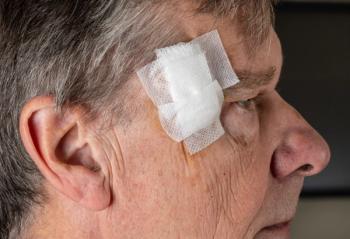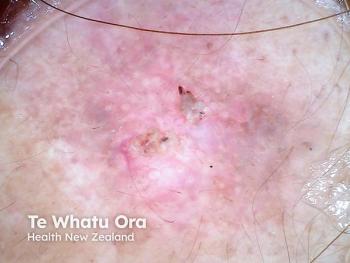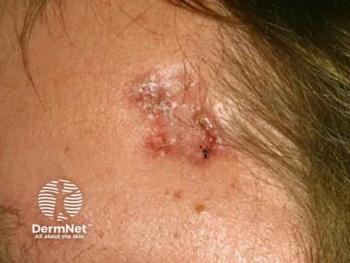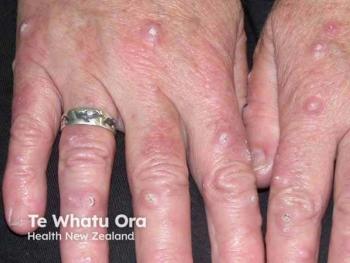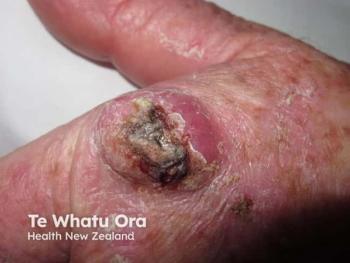
Device Improves Skin Cancer Images
Content-aware image restoration (CARE) technology demonstrated improvement in examining cellular details of skin.
A study published in Lasers in Surgery and Medicine (LSM), the official journal of the American Society for Laser Medicine and Surgery (ASLMS), investigated the improvements in quality of the content-aware image restoration (CARE) technology.1
Currently, reflectance confocal microscopy (RCM) is an optical microscopy method that can non-invasively examine cellular details of human skin. In numerous clinical studies, RCM was shown to provide high diagnostic accuracy for the most common skin cancers. However, the high cost of commercial RCM machines has prevented them from widespread clinical adoption.
Led by Dongkyun Kang, PhD, assistant professor of optical sciences and biomedical engineering at the University of Arizona, Tucson, Arizona, the study’s objective was to improve the image quality of the lower cost method of microscopy, portable confocal microscopy (PCM). PCM can visualize cellular details of human skin in vivo.
PCM is a low-cost reflectance confocal microscopy technique but its image quality is often degraded by motion blur. This study takes a deep learning-based approach using CARE to reduce noise in confocal images obtained at high speed.
“The deep learning-based approach quantitatively and qualitatively improved the confocal image quality,” said Kang. “It increases the image sharpness and enables real-time 3D imaging.”
CARE network was trained, using the Google Collaboratory Pro platform, with pairs of low signal-to-noise ratio (SNR) input and high SNR ground truth PCM images. This was obtained from 309 different regions of interest (ROIs). The low SNR input images were acquired from human skin in vivo at 180 frames per second and the high SNR images were created by registering 30 low SNR input images obtained from the same ROI then summing them. The denoising performance was quantitatively and qualitatively evaluated by using image pairs from 45 unseen ROIs.
CARE denoising improved the image quality significantly. The CARE technology increased similarity with the ground truth image by 1.9 times, reducing noise by 2.35 times, and increased SNR by 7.4 decibels. Also, banding noise, which is prominent in input images, was significantly reduced. CARE denoising provided quantitatively and qualitatively better noise reduction than nondeep learning filtering methods. Qualitative image assessment by 3 confocal readers demonstrated that CARE denoised images exhibited negligible noise more often than input images and nondeep learning filtered images.
According the the study’s investigators, further studies are needed to better train and test DL-based denoising methods for PCM images acquired from disease-suspicious skin lesions.
Disclosure:
Dongkyun Kang is an inventor of US patent applications (University of Arizona, assignee) on the portable confocal microscopy hardware. The University of Arizona has a technology-licensing agreement with ArgosMD on the portable confocal microscopy hardware. Dongkyun Kang has the right to receive royalties as a result of this licensing agreement. Dongkyun Kang serves as a scientific advisor to ArgosMD.
Reference:
1. Zhao J, Jain M, Harris UG, Kose K, Curiel-Lewandrowski C, Kang D. Deep learning-based denoising in high-speed portable reflectance confocal microscopy. Lasers in Surgery and Medicine. n/a(n/a). doi:https://doi.org/10.1002/lsm.23410
Newsletter
Like what you’re reading? Subscribe to Dermatology Times for weekly updates on therapies, innovations, and real-world practice tips.

